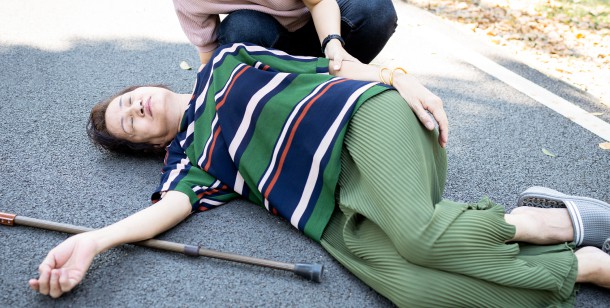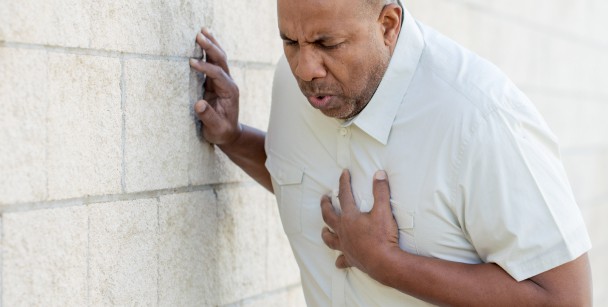The film industry has somewhat normalized fainting to aid in dramatic scenes, but rarely explore the potential causes and consequences that fainting may indicate. The fact of the matter is that when a person faints, there could be some very serious problems happening behind the scenes. Illnesses with fainting symptoms present themselves in both old and young people, so it is important that you seek treatment regardless of age. If you have experienced fainting spells or think you need to go to the ER if fainting a lot, keep reading to learn more.

What Can Cause You to Pass Out?
While there are many causes of fainting, ranging from physical to emotional triggers, the most common reason that people faint tends to be related to a drop in blood pressure. If you have a mild fainting spell it is likely that, for whatever reason, your blood pressure dropped and your brain could not get the blood flow and oxygen that it needed. This can be caused by internal or external bleeding, ruptured blood vessels, and heart problems. One medical condition that can induce fainting is an irregular or slow heart rate. This kind of heart rhythm problem can cause a person to lose consciousness for long periods of time and can be very alarming. A more serious medical condition that can cause a loss of consciousness are seizures; although most seizures cause people to lose consciousness for much longer than blood-pressure related fainting, every person is different and seizures can oftentimes be very subtle.
People can also faint from extreme pain, fear, or surprise. For example, the sight of blood, prolonged anxiety or fear, or sudden extreme pain are all common causes of fainting. When you experience these kinds of triggers, your body overreacts and cannot deliver the blood that your brain needs for the rest of your body to function. This can oftentimes be seen as a defense mechanism; your brain shuts the body down so that you do not have to deal with whatever oncoming trauma that will cause you stress.

Can Fainting Be a Sign of a Heart Attack?
Although it is less common, fainting can be both a precursor to and symptom of a heart attack. As fainting is most commonly an issue of blood pressure, those with chronic low blood pressure are more prone to heart attacks. Furthermore, people who have had a heart attack are more likely to go into cardiac arrest, which tends to cause a loss of consciousness. If you have a history of blood pressure problems, fainting, heart attacks, or strokes in your family medical history, you should take care to see a doctor on what you can do to manage your health and minimize your symptoms.

What To Do If You Think You Are About to Faint
For many people, they have a feeling of disorientation or dizziness just before they faint. If you think that you may be about to faint and are still in control of your body, the best thing for you to do is try to stay calm, control your heart rate, and put your head between your knees. Make sure that you are situated safely and are, preferably, sitting down. The last thing that you want is to take a hard, uncontrolled fall and potentially injure yourself. Once your fainting episode has passed, you need to get yourself to see a doctor immediately to make sure that nothing is amiss.
Visit Village Emergency Centers
At Village Emergency Centers, we understand that emergencies of all types deserve immediate attention. If you have fainted, feel faint, or think you may be experiencing a heart attack, the best thing to do is to seek medical attention immediately. While a minor fainting spell may seem like a harmless isolated incident, you definitely need to go to the ER if fainting a lot. It could be nothing, or it could be something far more serious. Visit a Village Emergency Center near you today to get top-notch, 24/7 emergency care without little to no wait. Contact us!
